Crossing the desert proved an ordeal passengers could never forget.

A San Antonio and San Diego Mail Line (the Jackass Mail) ad stated: “Passengers and Express matter forwarded in new coaches drawn by six mules over the entire length of our Line, excepting the Colorado Desert of 100 miles, which we cross on mule back. Passengers GUARANTEED in their tickets to ride in Coaches, excepting the 100 miles, as stated above.”
The state of various well-used wagons should have been the first clue for the boarding passengers that the ad was more fiction than truth.
On June 12, 1857, James E. Birch, of Swansea, Massachusetts, entered into contract with the U.S. government for Route No. 8076 at $149,800 per annum, for a semimonthly service to commence on July 1, 1857, and to expire June 30, 1861. Birch had only three weeks to organize the 1,475-milelong trail through the frontier. He assigned Isaiah C. Woods as superintendent.
Birch’s wife, Julia, wanted a mansion filled with beautiful things with servants to care for them. Birch left Woods in charge whilehe returned to Swansea to finish building Julia’s mansion. On September 12 he booked passage on the ill-fated side-wheeler Central America that was laden with gold from the California goldfields. About 40 miles from Cape Hatteras, in a violent storm, the ship split her seams. Birch had refused the offer of a life-belt, and a survivor relayed Birch’s last words “No, Gabe; it’s no use,” as he strode away, smoking a cigar whose glow he fully intended should be extinguished with the last breath of his life.
This story is from the September 2019 edition of True West.
Start your 7-day Magzter GOLD free trial to access thousands of curated premium stories, and 9,000+ magazines and newspapers.
Already a subscriber ? Sign In
This story is from the September 2019 edition of True West.
Start your 7-day Magzter GOLD free trial to access thousands of curated premium stories, and 9,000+ magazines and newspapers.
Already a subscriber? Sign In
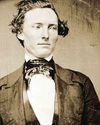
FIREARMS COLT WALKER 47
THE LEGENDARY HANDGUN THAT REALLY WON THE WEST
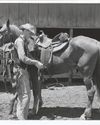
HERITAGE TRAVE
THE AMERICAN WEST IN ALL ITS GLORY OUR ANNUAL FAVORITES LIST CELEBRATES DESTINATIONS ACROSS THE WESTERN UNITED STATES.
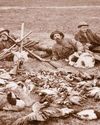
Wild Turkey, and Not the Drinkin' Kind
The actual bird was a favorite of pioneers.
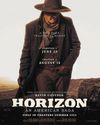
THE PASSION PROJECTS OF THE MODERN WESTERN
A YEAR OF UNDERRATED EXCELLENCE
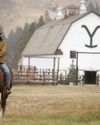
WESTERN BOOKS THEN AND NOW
THE STATE OF WESTERN HISTORY AND FICTION PUBLISHING IN 2024 IS ONE OF GRIT AND DETERMINATION.
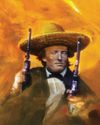
SAMUEL WALKER VALIANT WARRIOR
While a prisoner at the castle of Perote, Walker was put to work raising a flagpole. At the bottom of the hole, Walker placed a Yankee dime, vowing to someday come back and retrieve it, at the same time exacting revenge on his Mexican captors. In the summer of 1847, when Walker's mounted riflemen returned and routed Santa Anna's guerillas, the young captain kept his promise and got his dime back.
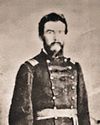
THE BATTLE OF CENTRALIA
ON September 27, 1864, Bloody Bill Anderson and about 80 men took over the small railroad village of Centralia, looting stores and discovering a barrel of whiskey that they hauled out into the street. Wild enough when sober, they soon were roaring drunk.
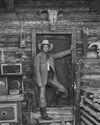
THE MAN WHO SHOOTS THE WEST
Jay Dusard is a living American photographer who has made Arizona his home for over 60 years, seeing it first in 1960 on a visit, moving here for good in 1963.
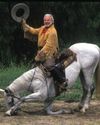
A TRUE WESTERNER INDEED PHIL SPANGENBERGER 1940-2024
Spangenberger had Nevada trained to bow by the legendary horse trainer, Glenn Randall, who trained Roy Rogers' Trigger, Gene Autry's Champion, Rex Allen's Koko and the Ben Hur chariot horses, among other great equines.

Where Did the Loot Go? - This is one of those find the money stories. And it's one that has attracted treasure hunters for more than 150 years.
Whatever happened to the $97,000 from the Reno Gang's last heist? Up to a dozen members of the Reno Gang stopped a Jeffersonville, Madison and Indianapolis train at a watering station in southern Indiana. The outlaws had prior intelligence about its main load: express car safes held about $97,000 in government bonds and notes. In the process of the job, one of the crew was killed and two others hurt. The gang made a clean getaway with the loot.